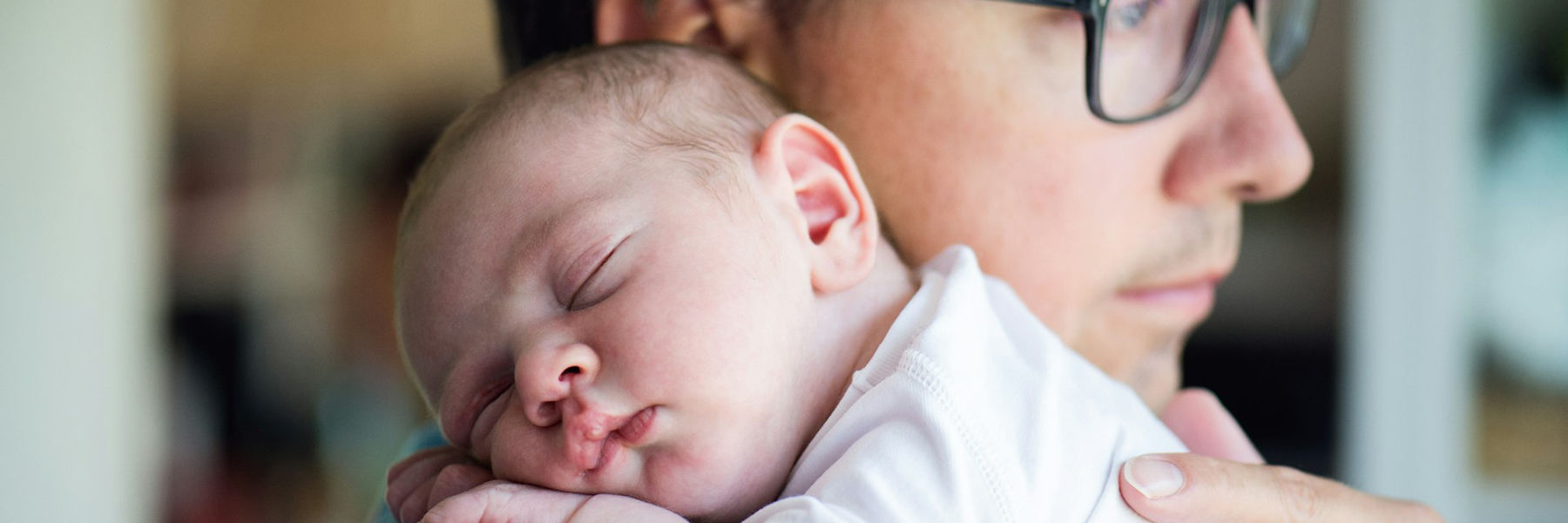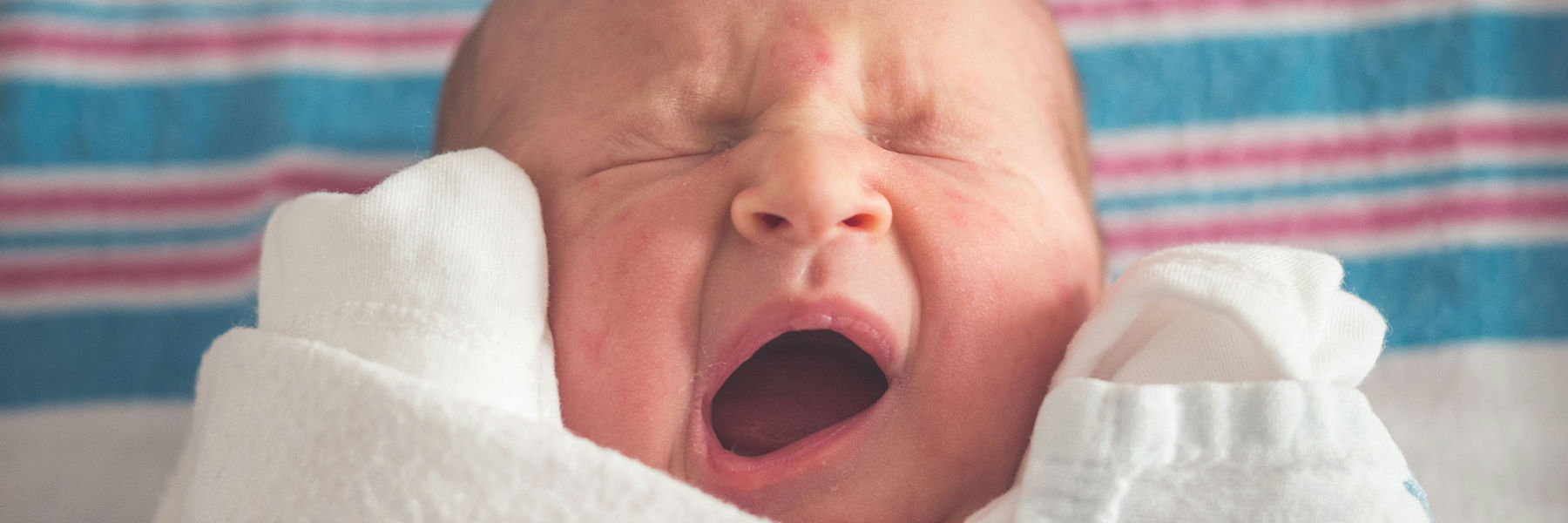Use arrow keys to navigate through the menu items. Use Tab key to navigate through the menu banners.
Sleep Patterns

Sleep Patterns
Baby sleep expert Claire Maguire shares her knowledge to help parents and their babies sleep better
I'm Claire Maguire, an award-winning postnatal practitioner, sleep consultant, and mum of two. I understand the feeling of sleep deprivation very well, as my first baby rarely slept. Fortunately, I have many tried-and-tested methods backed up by research to help you support your baby's sleep.
Newborn babies tend to sleep more than they are awake. Their total daily sleep duration may vary between eight and 16 or even 18 hours. Typically, in their first three months, they sleep around 16 hours each day, approximately eight hours at night and eight hours during the day. This sleep may occur in short or long bursts: a micro nap of a few minutes or a few sleep cycles combined. A newborn’s sleep cycle lasts up to 45 minutes.
If your baby isn’t sleeping much, don’t despair; their sleep cycles will get longer as they grow and develop. It's not until around eight to 12 weeks that your baby's circadian rhythm (sleep-wake cycle) matures enough for them to begin to tell night from day.
What to expect in month one
In the first month, you and your baby will be establishing feeding. Your newborn's tummy is tiny – around the size of a cherry – so they'll need frequent feeds. They won't have a regular sleep pattern yet, and their sleep cycles are short, so they are likely to wake often throughout the night.
Before four months, babies have very little self-soothing capability. You can help soothe your baby to sleep by feeding, rocking, cuddling, using a pram or sling, or gently bouncing on a birthing ball while holding them. Don’t worry – these techniques won’t spoil your baby or affect their ability to fall asleep later.
Contact naps
When your baby falls asleep on you, it’s known as a contact nap. The emotional connection achieved through physical contact can increase your baby's feelings of security and result in a deeper sleep. But do keep in mind the Lullaby Trust's guidelines for safer sleep. I recommend creating a ‘snack station’ to move around the house with you, so you can be prepared for getting ‘nap trapped’. On a tray, add a glass of water, an insulated travel mug with your favourite hot or cold drink, and some snacks such as fruit or protein bars. Keep your phone or some other form of entertainment handy to help pass the time.

Discover the benefits of walking
If you're struggling with a little one who isn’t sleeping much, try taking them for a walk outside in daylight. Even if your baby is already asleep, photoreceptive (light-responding) cells in their skin send messages to their brain, helping to establish their internal body clock. Walking outside can be beneficial for your baby's sleep and your own.
What to expect in month two
Your baby's brain is maturing, and sleep cycles are beginning to get longer, sometimes joining together. Your baby's tummy will have grown, so you can also expect longer intervals between feeds. During this month, crying can peak due to developmental changes. Although sleep is still random, you may feel more confident in recognising your baby's sleep signals.

Look out for baby’s sleep signals
Signs that your baby is tired may include rubbing eyes, yawning, jerky arm and leg movements, looking away, staring into the distance, and crying. Your little one may have some different signs – for example, some babies sneeze when tired! When you notice these sleep cues, it’s time to move your baby to their crib if you can.
How to help your baby stay asleep
If your baby falls asleep on you, wait until they have an open hand or floppy arm to increase the chances of a successful transfer to their cot. Remember to follow safe sleep guidance and always place your baby's feet close to the bottom of the cot.
The Moro reflex is a primitive reflex that we no longer need. Babies usually grow out of it by three to four months, but it can be frustrating as it can cause babies to startle and wake themselves up. One way to reduce the chance of triggering your baby's Moro reflex is to slowly lower them into their cot. First, rest their feet on the mattress and then gradually slide them down until they are lying flat.
You can help your baby mature from this reflex through play. A great way to do this is by bouncing them while singing nursery rhymes.
What to expect in month three
During the third month, your baby's sleep patterns will change again. Your baby may sleep slightly longer at night and less during the day. As their brain develops and their tummies grow, they sleep longer. They will begin to know the difference between night and day as their circadian rhythm matures.
Start a simple sleep routine for baby
Now that your baby’s circadian rhythm has developed, you can try setting up a sleep routine. For daytime naps, introduce a predictable sequence of events before putting your baby down in their cot or Moses basket, such as feeding, patting, and shushing. This multisensory soothing is easy to move away from as your baby grows older because you can take away one intervention at a time.
In the evening, bathing your baby will raise their core temperature, which lowers when you take them out of the bath, triggering a surge in melatonin production that can help them feel sleepy. Baby massage can also help them fall asleep by releasing oxytocin, which lowers the hormones that can block the start of sleep. The benefits of massage only last for around two hours, so it's best to massage your baby in the lead-up to bedtime.
Don’t forget to take care of yourself
It can be frustrating to be told to ‘sleep when your baby sleeps’, as many parents want to catch up on their to-do list when baby is napping. Progressive muscle relaxation is an effective way to fight tiredness and release tension. You can even do this exercise while sitting down and holding your baby. It involves tensing each muscle group, starting with your toes, and working your way up to your head. This wonderful exercise is also helpful for getting back to sleep after dealing with a wake-up. Keeping yourself hydrated is also crucial for maintaining energy levels.
Sleep deprivation can be extremely tough, especially when you are caring for a baby. It's important to remember that every baby is different, and their sleep patterns will vary. Comparing your experience with others won't help. Please remember that your little one's sleep will improve over time and so will yours! In the meantime, take care of yourself, and don't hesitate to ask for help from your GP or health visitor if needed, as sometimes sleep is disrupted by allergies or occasionally ENT (ear, nose, and throat) issues.
Help & Customer service
- Help Centre
- How to shop
- Product recalls
Payment Methodslist with 8 items
- Asda Group of Companies
- Modern Slavery Statement
- Electrical Waste Recycling
- Terms & Conditions
- Customer Review Policy
- Privacy Centre
- Cookie Settings
- Accessibility
© ASDA 2025